
2025- 2027





2025- 2027




DearStudent,
A very warm welcome to UWC Atlantic as you join our engaged and extraordinary communityunitingbrilliant,deliberately-diverse,fertileyoungmindsacross90nationsand culturestoliveandlearntogetherinaquestforworldpeaceandsustainability Comewith anopen-mindandopenheart,andbepreparedtobechallengedandstretchedinwaysyou mightneverhaveimagined.
For the first time in decades, a group of students amongst our cohort who entered the College in 2023-2024, had an opportunity to pioneer a new version of the IB Diploma through a partnership between the College and the International Baccalaureate to transformeducationglobally CalledtheSystemsTransformationPathway:Leadershipfor Just Futures, this pathway teaches outside of classrooms and exams equipping students withtheskillstheyneedtochallengetraditionalsystemsacrossfourimpactareas:Food, Biodiversity,SustainabilityandMigration.Findoutmoreinsidethishandbook.
Attheheartofyournewhomeisourmagical12thcenturycastle,steepedinCeltichistory andwhere,justover60yearsago,theUWCglobalmovementfirstbegan BeyondtheCastle thereare122-acresofpasture,valley,woodlandandseafrontthatyoucannowcallhome Adventuresawait!Adventuresduringwhichfriendshipswillbeforgedandtransformations experiencedthatwilllasttherestofyourlives.
Butpleaserememberthatthiswonderfulopportunitycomeswitharesponsibility:toliveby UWC values and to make a positive difference in the world. Keep the following at the forefront of your mind in all you do here: UWC makes education a force to unite people, nationsandculturesforpeaceandasustainablefuture
Thishandbookprovidesanswerstomanyquestionsbutyou’reboundtohavemore.The staffandsecond-yearstudentsaretheretohelpyouwiththeanswers.
In the meantime, please take time to read this handbook paying close attention to the LearningthroughResidentialLifeandUWCAtlanticCodeofConductsections.Emphasisis placedonthepersonalresponsibilityandculturalsensitivitynecessaryforlivinginamultinationalcommunity
Mywishforyouisthatyouhavethetimeofyourlivesoverthenexttwoyearsandwhatever contributionyougoontomaketotheworld,you’llneverforgethowthisplaceinspiredyou.


Ourambitionstatementtobuildbridgebuildersand compassionateleadersissimpleandstrong.
Over 60 years ago, UWC Atlantic started the UWC movement, and today thanks to an ambitious ten yearstrategy,wearepioneeringagain.
This Transformative Education for Global Impact strategypositionsthecollegeasapioneerwithinthe education world, including an innovative new educationalpathwaydevelopedinpartnershipwith the International Baccalaureate - The Systems Transformation Pathway : Leadership for Just Futures.
Ourvisionistoreclaimourpositionastheflagship college of the UWC movement, recognised for the radical and experimental spirit that defines our historyanddrivesourimpactontheworld

Developbridgebuildersand compassionateleaders,empowering themtogobeyondtreatingsymptoms tounderstandrootcausesandinitiate transformativesolutionstohuman andenvironmentalcrises.Weare passionatethatlearningbecomes mostpowerfulwhenusedforthe greatergood.

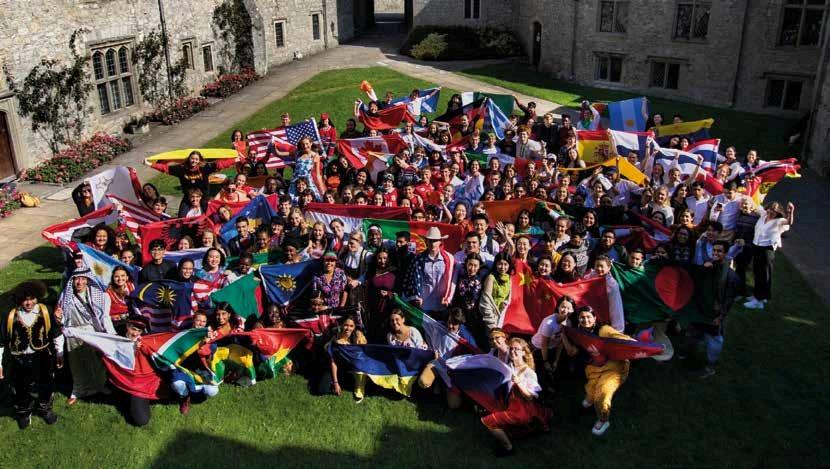
Mission, Values and Education Models
UWC makes education a force to unite people, nations and cultures for peace and a sustainable future.
UWC believes that to achieve peace and a sustainable future, the values it promotes are crucial.
•Internationalandinterculturalunderstanding
•Celebrationofdifference
•Personalresponsibilityandintegrity
•Mutualresponsibilityandrespect
•Compassionandservice
•Respectfortheenvironment
•Asenseofidealism
•Personalchallenge
•Actionandpersonalexample
Findoutmoreatwww.uwc.org

UWCAtlantic,likealltheUnitedWorldColleges,offerstheInternationalBaccalaureateDiplomaProgramme(IBDP) The IBDiplomaisadeliberatesynthesisofthespecialisationrequiredinsomenationalsystemsandthebreadthprovidedin others.
In2023-2024,UWCAtlanticbecamethefirstschoolintheworldtoofferanewpathwaywithintheIBDP:theSystems TransformationPathway.TheSystemsTransformationPathwaysupportsourambitionthataUWCAtlanticeducation develops“bridgebuildersandcompassionateleaders,empoweringthemtogobeyondtreatingsymptomstounderstand rootcausesandinitiatetransformativesolutionstohumanandenvironmentalcrises”Thispioneeringanddistinctive newIBDPpathwayhasbeendevelopedoutofapartnershipbetweenUWCAtlanticandtheInternationalBaccalaureate
BothpathwaysbelowleadtostudentsreceivingthefullIBDiploma,subjecttomeetingthegraduationrequirements.
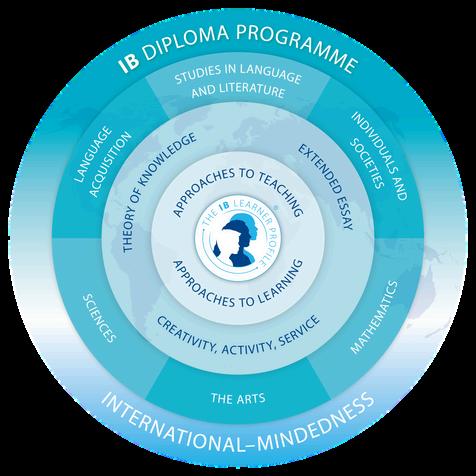
StudentscompletingthefullIBDParerequiredto studysixsubjectsacrossdifferentacademicareas
Thesixacademicareasare:
Group1:StudiesinLanguageandLiterature
Group2:LanguageAcquisition
Group3:IndividualsandSocieties
Group4:ExperimentalSciences
Group5:Mathematics
Group6:TheArts
StudentsmustchooseonesubjectfromGroups1-5. TheymustthenselecteitheronesubjectfromGroup6 orchooseasecondsubjectfromGroups1to4
StudentsmustchoosethreesubjectsatHigherLevel andthreesubjectsatStandardLevel.
Note:EnvironmentalSystemsandSocietiesisan interdisciplinarycoursethatcanbechosenasaGroup 3oraGroup4subject.
FindoutmoreabouttheIBDiplomaatwwwiboorg
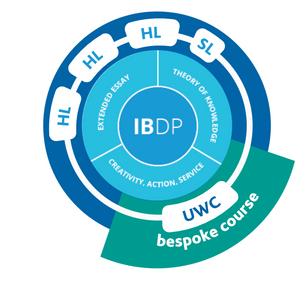
TakingtheplaceoftwoStandardLevelsubjectsinthe IBDPisabespokecoursespeciallydesignedatUWC Atlantictoequipgraduatestotakeonsomeofthe greatestglobalchallengesonaclimate-changedplanet: transformingthefoodsystem;advancingajustenergy transition;reversingbiodiversitylossandrestoring ecosystems;andrespondingtomigrationand displacementatanunprecedentedscale
StudentspursuingtheSystemsTransformationPathway mustchoosethreeIBDPsubjectsatHigherLevelandone subjectatStandardLevel TheSystemsTransformation PathwaycourseisworthtwoStandardLevelsubjects.
Toensurebreadthintheirstudies,studentsarerequired totakeatleastonesubjectfromGroups1and2andat leastonesubjectfromGroups4and5.
Studentscantakeuptotwocoursesfromeachacademic area(Groups1-6),butnomorethantwosubjects combinedfromGroups1and2.Beyondthisthereareno restrictionsontheirsubjectchoices.
FindoutmoreaboutthenewSystemsTransformation Pathwayat https://www.uwcatlantic.org/learning/academic/system s-transformation-pathwayorthecoursemicrosite https://sitesgooglecom/uwcatlanticorg/transformingsy stems
Programmeof townhalls including subjectchoice information
Subjectchoiceform completed,including asecondsetof subjectsforthose applyingtothe Systems Transformation Pathway
Applicationsduefor thefirststageof selectionsforthe Systems Transformation Pathway
27Mayand3 June 1July 15July
Diagnostictesting Finalstage selectionsforthe Systems Transformation Pathway
TosupportyouwithchoosingtherightpathwayandsetofsubjectsintheIBDP:
Timetable finalisedwith tutor
Step1:Weofferaseriesoftownhallmeetingsforstudentsandfamiliesintheincomingclass,includingoneonthe academicprogramme,withspecificinformationaboutSystemsTransformationPathway.
Step2:Alongwithvariousenrolmentforms,youwillreceiveoneespeciallytomakeyoursubjectchoices.Tohelpyou completethisformyoucanrefertotheinformationinthisbookletandreviewthevideorecordingsofthetownhall meetings.TheapplicationprocessandformfortheSystemsTransformationPathwaywillopenatthesametime. StudentsapplyingtothePathwaywillbeaskedtosubmittwosetsofsubjectchoices:asetof4subjectstheywould takealongsidethePathway,andincasetheyarenotselected,asetof6subjectsinthecurrentIBDiploma.
Step3:ThevideoapplicationforthefirstroundofSystemsTransformationPathwayisdueon9July.Followinga shortlistingprocess,applicantsarenotifiedoftheoutcomepriortoarrivingattheCollegeandfinalistsinvitedtothe in-personselectionactivity.
Step4:Intheorientationprocessallfirstyearstudentswilltakeanadaptivecognitiveassessment,adiagnostictestin MathsandcompleteanEnglishwritingexercise Thisistogiveusanindicationofyouradvisedlevelinyoursubject selections StudentsshortlistedforthefinalstageoftheselectionprocessfortheSystemsTransformationPathway willparticipateinacollaborativeselectionactivityduringtheorientationperiod
Step5:Yourtimetablewillbefinalisedwithyourtutorafterthediagnosticresultshavebeencompleted
EnrolmentintheSystemsTransformationPathwayissubjecttoaselectionprocessandthecohortwillbefinalised priortothefirstdayofclasses
AllotherIBsubjectsareofferedsubjecttoavailability,timetablingconstraintsandstudentnumbers Incaseasubject isoversubscribed,randomselectionmightbeappliedtodecidewhocantakethesubject Thestudentswillbenotified inadvanceifthisislikelytohappenallowingthemtohaveanalternativeplan Pleasenotethatwerequireaminimum uptakeof6studentstoofferanyofthesubjects Wereservetherighttomakethedecisionnottoofferasubjectat shortnoticeatthebeginningofterm
ThespiritofEndeavourorco-curricular learningisdeeplyingrainedintheculture andhistoryofUWCAtlanticCollege,anditis avitalpartoftheIBDiplomaProgramme. Theco-curricularprogrammeisdesignedto supportyouinyourpersonaland interpersonaldevelopment,providing opportunitiesforself-discoveryandgrowth. Everystudenthasuniquestartingpoints, needs,andgoals,andawell-roundedcocurricularexperiencecanbeaprofoundand life-changingexperienceforeachindividual
AvitalcomponentoftheIBDiplomaProgramme, theprimaryobjectiveofCASistodevelopyouintoa reflectivethinkerwhounderstandstheirownstrengths andlimitations,identifiespersonalgoals,anddevises strategiesforpersonalgrowth.Additionally,CAS encouragesyoutobewillingtoacceptnewchallenges androles,awareofyourselfasamemberofa communitywithresponsibilitiestowardseachother andtheenvironment,activeparticipantsinsustained collaborativeprojects,andbalancedindividualswho enjoyandfindsignificanceinarangeofactivities involvingintellectual,physical,creative,andemotional experiences.CASisstructuredaroundthreestrands: creativity,activity,andservice
Creativity-involvesexploringandextendingideas leadingtoanoriginalorinterpretiveproductor performance
Activity-referstophysicalexertioncontributingto ahealthylifestyle.
Service-involvescollaborativeandreciprocal engagementwiththecommunityinresponsetoan authenticneed.
CASformallybeginsatthestartoftheDiploma ProgrammeYouareexpectedtogiveequal importancetoCASastoanyotherelementofthe DiplomaProgramme,ensuringsufficienttimeis allocatedforengagementintheprogramme SuccessfulcompletionofCASisarequirementforthe awardoftheIBDiplomaWhileCASisnotformally assessed,youwillreflectonyourexperiencesand provideevidenceinyourCASportfoliotodemonstrate thatyouhaveachievedthelearningoutcomesThe portfolioisacollectionofevidencethatshowcasesCAS experiencesandstudentreflections.
Prentis-theWelshwordforapprentice-isacocurricularinitiativethatinvitesyouto“apprentice yourselftoacauseyoubelievein” Studentswillwork tounderstandalocalsystemlinkedtobiodiversity, energy,food,waterormigrationandconsiderwhere theycanintervenetomakeadifference Youcan applytoaPrentismoduleasoneofyourCASactivities andwilldevelopthekeyskillsneededfortaking impactfulaction:selflessnessandbridgebuilding; designingforimpactcenteredonneed;managing impactfulaction;andjoyfulactivism Youwillalso participateinaPrentisActionDaythatbrings togetherallthatyouhavelearnedandexperienced.
ExamplesofPrentismodulesfrompreviousyears include:AtlanticPacific@AC,wherestudentspractice humanitarianresponsestodrowning,designand buildrigidinflatablehullboats,andremoveplastics fromourseasthroughinnovativemethods;Diaspora Documentaries,wherestudentsconnectwithpeople livingawayfromtheirhomelandandmake documentaryfilms,andNarrativesforSocialChange, wherestudentscurateandproject-manageapop-up museumwiththeaimofdisruptingnarratives.
PrentisallowsstudentsonourSystems TransformationsPathwaytoworkonasmall interventionintheirfirstyearbeforetheyworkon interventionsaspartoftheircourseinthesecond year Prentisallowsallotherstudentstheopportunity toengagewithaspectsoftheSystems TransformationPathway.ThefullofferingofPrentis modulesfor2025/26willbesharedduringthe inductionprocess,whereyouwillhavethe opportunitytoapplytojoinPrentisaspartofyour CASprogramme.
LighthouseChangemaking&InnovationHub
Lighthouseisanoncampushubfocusedon empoweringstudentstodevelop,test,launchand implementbusinessesandprojectswithapositive social&environmentalimpact.
Lighthouseprovidesstudentswithinspiration, mentorship,funding,skillbuildingsessionsand connectsthemwithrelevantresourcesandexperts.We believethatallstudentscanbecomesocial entrepreneursorintrapreneursandthattheseskills canbenefitthemforlifeinalldomains
Thereareseveralwaysforastudenttobeinvolved withLighthouse:
WeeklyCAS:Everyweek,studentsmeettogether tostartorcontinuetoworkonprojects.This allowsfornewprojectstoemerge Wealso discovernewdesignandinnovationskills,career pathwaysandattendworkshopsbybusinessand designexperts.Thisisalsoagoodspacefor studentswhowanttodosomethingbutdon’thave anidea,tolearntogofromideation,prototyping andimplementationofanewprojectorworkwith others.
IndividualCoaching&Mentorship:Studentscan bookatimetomeetwithLighthousestaffto discusstheirprojectorbusinessideastohelpthem moveforward Wealsoconnectstudentstoexperts suchasuniversityprofessors,venturecapitalfirms andotherprogramstohelptheirideasflourishand becomesuccessful.
AttendeventssuchastheAnnualHackathonora PitchCompetitionwhereexternalexpertsand communitymemberscometogethertocreatenew ideasforon-goingchallengesandlearnto communicatetheirideastofundersand collaborators.
ApplyforFunding:EverymonthLighthousegives smallgrantsforstudentswhoneedsupportfor project.Attheendoftheyear,studentscanattend theLighthousePrizeeventtopitchforaprizeupto £10,000 Wealsoshareon-goingopportunitiesfor externalfundingwithstudentsandhelpwiththeir applicationstoschemessuchasRise,EarthPrize, GoMakeADifferenceandmanymore!
AttendSkillWorkshopstodevelopskillsfrom PublicSpeaking,tocreatingaprojectbudget,to buildinganonlinebrand,tolearningaboutImpact Investing Weworkwithalumniandparentsto hostworkshopsthathelpdevelopreal-lifeand practicalskillstohelpyousucceedinbusiness, projectmanagementandleadership!
Someofthe30projectssupportedbyLighthousein previousyearsinclude:
AISA(ArtificialIntelligenceSignLanguage Assistance):Asign-languagetranslationappthat aimstobridgethecommunicationgapbetween hearinganddeafindividuals.
Light-Up:Aprojectseekingtoacceleratetheshift tosustainableenergyinZimbabwewhilst endorsingfemaleempowermentbypromoting poultryrearingtobuysolarpanelsfor communities
NewBeginnings:Arehabilitationschemefor juveniledetentionleaversinTogothatprovides themwithvocationaltrainingandprovidestheir familieswitheducationandfinancialsupport InternationalFootballCoaching:Providingfree footballsessionsforyoungpeopleinthelocal communitytoaddressthelackofaccessto affordablespotsinthearea Set-UpSensei:Auniqueapptosupportmental healthofyoungmen.Set-UpSenseihascreated theworld’sfirstAIpoweredmartialartstraining appandcommunity FertigolFarms:Buildinghydroponicsystemfor foodinsecurefamilies
TakeadvantageofLighthouseandlearntotakeideas andmakethemareality


Ifyouhad5daystoworktogetheronaprojectwitha diversegroupofyourpeersandanadultally,what wouldyoudo?
ThisisthepremiseofProjectWeek,anopportunityto immerseinaprojectfocusingonteamwork,UWC valuesandpersonalgrowththroughmeaningful experiences.Importantly,ProjectWeekisan opportunityforstudentstodemonstrateinitiative andexerciseleadership-andeachyearwesupportan excitingmixofstaff-ledandstudent-initiated(but staff-supported)ProjectWeeks.
Thepreparationandrunupisalwaysanexcitingtime asstaffandstudentleadersalikeplanfortheweek’s activitiesEachyear,differentthemesaresetoutand studentshavetheopportunitytoorganizeand proposeprojectstheywouldliketoundertakewith theguidanceofstaffmentors
Projectsarechosenonanumberofcriteriabutgivea verybroadrangeofamazingexperiencesforstudents tochoosefromandoutcomestoachieve.Wevalue ambitionandencouragestudentstotrysomething new
Inthepastyear,projectsincludedhikingandcultural expeditionsaroundWalesandEngland,workingon Peace&Conflictworkshopsforlocalschools, composingamusicalandtrainingyoungstudents fromprimaryschoolstoperformit,engagingwiththe FutureGenerationsCouncilinCardiff,learningabout thehistoryofastronomyandbuildingasundial, illustratingagraphicnovelandmakingfurnitureout oftrash!Wehadover36optionslastyearandwe knowthisweekisahighlightofyourUWCAtlantic experience.
ParticipationinProjectWeekisarequiredcomponent ofourco-curricularprogrammeandisanimportant partofaUWCeducation;student'sattendance, commitmentandenthusiasmenablethistobea memorableweekwithpersonalgrowth,skill developmentandrelationshipbuilding,leadingto lifelongmemories
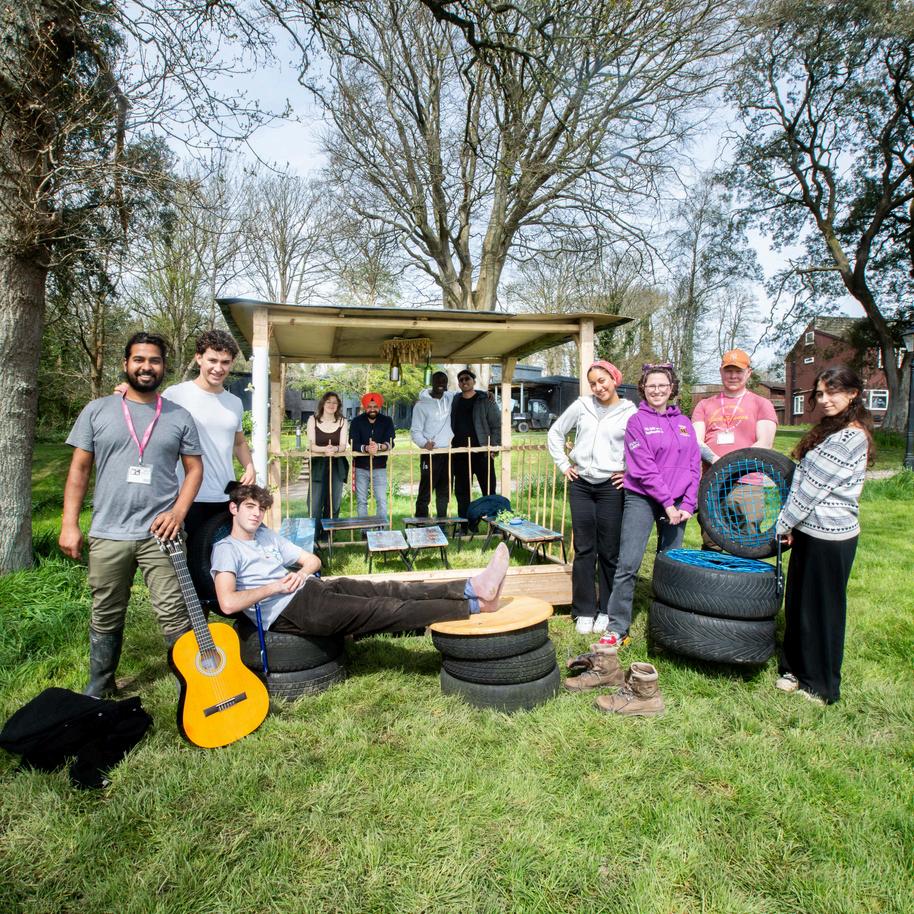
Conferencesareachangeofpaceinoureducational programme,wherefortwodayswebreakfromthe typicalscheduleoftheacademicweektocreatea differentkindoflearningcommunity
Wehavethreeconferenceseachschoolyear,andthey areentirelystudent-designedandledfrominception throughtodelivery.Consistentlymentionedasa highlightofmanystudents’experienceattheCollege, conferencesfocusonhonouringthediversitywithin theUWCAtlanticcommunitytoextendandbroaden studentknowledgeandexperience,withafocuson peerlearning
Ourconferencescoverarangeoftopicsthatstudents proposefromtopicsimportanttothemandthese topicsarethenselectedbythestudentbodyeach year
In2024-25,ourfirstconference,OceanCon,lookedat UWCAtlantic’sheritagewiththesea,sustainability andhowtheoceanconnectsourplanet
OursecondconferencewasJuntos,anIbero-Latin conferencethatshowcasedthedifferentcountries fromLatinAmericaandSpain,theirculturesand traditions
OurfinalconferencethisyearwastheFestivalofJust Futureswhichlookedatglobalissuesthroughthekey impactareasoffood,biodiversity,migration,and educationusingthelensofsystemsthinkingand leadership
Allourconferencesaresupportedbyexternal speakersandfacilitatorswhohelptoenrichand expandthecontent.
Conferencedatesfor2025-26are:
16-17November2025 25-26January2026 15-16March2026
AllstudentsparticipatefullyintheConferences programmeonbothdays-SundayandMonday.
Pleasenotethescheduleofcollegeholidays Studentsmusthavefullattendanceduringthe publishedcollegedates,pleaseseethecurrentKey Datesonthefollowingpage.
Absencesduringterm-timewillonlybeauthorised underexceptionalcircumstances;aLeaveofAbsence Form(LOA)mustbecompletedatleast7daysprior totherequestedabsencePleasedonotbookany travelpriortosubmittingtheLOAformStudentsare expectednottotakeanLOApriortoOctoberbreakto allowtimeforsettlingin.Studentattendanceduring orientationismandatoryandthereforeleaveof absenceduringthestudentorientationprogramme willnotbeauthorised.Itisimportantthatstudents havetimetosettleintothenewtermandtoestablish routinesandrelationshipsbeforetheyleavethe campus
ThecollegecalendarallowsustodeliverthefullUWC educationalprogramme,whichputsequalemphasis oncurricularandco-curricularactivities.
Parentsandstudentsmustunderstandthatthe publishedtimesanddatesofholidaysarenot negotiable.Travelplansshouldbearrangedwithin theadvertisedholidaydates.Itisimportantfor parentstoplaninadvancetoavoidunauthorised absences
NewstudentsjointhecollegeattheendofAugust
ThefirsttermendsinthemiddleofDecemberanda breakofthreeandahalfweeksenablesstudentsto returnhome
Pleasenotethatordinarilystudentsarenotableto beaccommodatedontheCollegecampusduringthe DecemberbreakIncaseswherestudentscannot returntotheirhomecountryduringtheDecember break,they/theirfamiliesshouldarrange alternativeaccommodation.
Thesecondterm,whichbeginsinearlyJanuary, continuesuntilmid-June
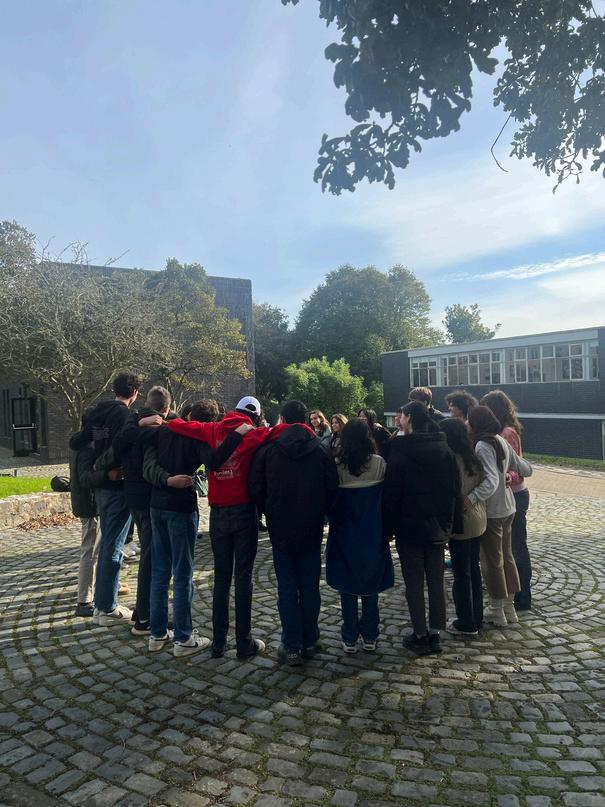
Pleasenotethemainholidaysbelowandspecifically whenthecollegeisclosedforstudentsandalternative arrangementsmustbearranged.
October Break
Winter Break
Studentscanstay,return homeorvisitelsewhere
Nobusestoairport provided Campusis open
Studentsareexpectedto leavethecampus. Buses toairportprovidedat 10pmand7am. Campusis closed
Spring Break
Summer Break
Studentscanstay,return homeorvisitelsewhere.
Nobusestoairport provided Campusis open
Studentsareexpectedto leavethecampus.Buses toairportprovidedat 10pmand7am. Campusis closed

Thesearethekeydatesforthe2025-2026term,thesedateschangeannuallyandthelatestdatescan alwaysbefoundonourwebsiteandalsowithintheiSAMsparentportal
Friday 22 August 2025
Second Year (IB2) students arrive
Tuesday 26 August 2025 First Year (IB1) Students arrive
Friday 24 October 2025 Start of October Break begins (at 14:30)
Sunday 2 November 2025 End of October Break (at check-in)
Thursday 11 December 2025 Start of December Break (at 14:30)
Monday 5 January 2026
Thursday 2 April 2026
Sunday 12 April 2026
Saturday 23 May 2026
Thursday 11 June 2026
End of December Break/Students return (at check-in)
Start of Spring Break (from 14:30)
End of Spring Break (at check in)
Last Day for Second Years (IB2) Leavers’ Celebrations
Last Day for First Years (IB1) (from 14:30)
*PleaserefertotheStudentHandbookformandatorystudentattendancedatesie ProjectWeek,UWC Day,Conferencesx3,Camp,EEDayetc.
**IB2Examdates-27/04/26-20/05/26
***UWCAtlanticrecommendsthatstudentsdonottake‘leaveofabsences’priortotheOctoberbreak
26thAugustisthedateallofournewfirst-yearstudentsbegintheirtwo-yearUWCAtlanticjourney.Thereisalsoa parent-onlyprogrammeavailableintheafternoon.Thisisnotmandatory,butifyouarecomingtothecollegetodrop offyoursonordaughter,thenyouarewelcometojoinusfortheafternoon.
OurAdmissionsteamwillemailyouadetailedprogrammeandthekeytimingsfortheafternoonwillbe:
13.00to14.30pm-Allocatedtimeforstudentstobedroppedoffandsettledintotheirnewhouses.
1430to1830pm-Ourparent-onlyprogrammewithanopportunitytomeetourPrincipal,ourLeadership TeamandkeyUWCAtlanticstaff
YouwillreceiveatravelformbyemailfromAdmissionsandthisiswhenyoucantellusyourtravelplansandbookin forourparent-onlyprogrammetoo

TheUWCCommonCodeofConductisaseriesofexpectationswhichallstudentsacceptinordertojointheUWC movementand,byassociation,theUWCAtlanticcommunity TheUWCCodeofConductisbasedontheUWCvalues, whichareattheheartofthemovement’smissiontomakeeducationaforcetounitepeople,nations,andculturesfor peaceandasustainablefuture.ItisUWCAtlantic’sdesirethateverycommunitymemberworkstowardsembodying thesevalues WeexpecttheCodetobeobservedbyallstudentswheninattendanceattheCollegeandonCollege activities PleasesignandsendtheBehaviourPolicyFormwhichcanbedownloadedfromourwebsite Thepolicy canbefoundhere.

TheUWCCommonCodeofConduct
PursuingtheUWCmission–tomakeeducationaforce tounitepeople,nations,andculturesforpeaceanda sustainablefuture–requiresacommitmenttothe followingvalues:internationalandintercultural understanding,celebrationofdifference,personal responsibilityandintegrity,mutualresponsibilityand respect,compassionandservice,respectforthe environment,asenseofidealism,personalchallenge, actionandpersonalexample
AttheheartoftheUWCethosisrespectforselfand othersinallouractionsandwordsinall circumstances,includingonline Thismeansthatwe mustthinkaboutthecommongoodandbeabletorise aboveourindividualdesiresandneedsinorderto createfullyintegratedcommunities Inshort,our idealsrequiregoodheartednessfromallmembersof theUWCcommunityandarecognitionthatcultural normsarediverse.
ThecommonCodeofConductisrequiredtomake expectationsclear.Studentswhoacceptapositionata UWCschoolorcollegecommittothepursuitofa healthylifestyle,onethatavoidspotentialharmtoself andtoothers
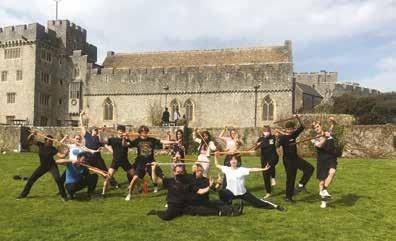
Therefore,thefollowingarenotacceptable: Consumption,possessionand/ordistributionof: drugsforrecreationalorothernon-medically prescribedpurposes tobacco,vapingandotherrelatedproducts alcoholonschool/collegepropertyand school/collegesponsoredactivities
Sexualactivityinstudentroomsandanyother sharedorpublicspaces
Violenceofanykind,includinghazing,bullying, harassmentoranyotherformofabuse
Assault,includingbutnotlimitedtoverbal, physicalandsexual
Stealingor“borrowingwithoutpermission”
Eachschoolorcollegewillhaveclearexpectations regarding:
Attendance(atallclassesandactivities)
Academicintegrity
Respectforcurfewand/orquiettimes
Alcohol‘offcampus’
IndividualUWCschoolsandcollegesmayhave additionalstandardsontheseissuesthatreflectthe laws,culturalnormsandcircumstancesofthecountry inwhichtheyarelocated Theexpectationisthatthe UWCCommonCodeofConductwillbefollowedboth inactionandspirit ThosewhobreachtheCodemay losetherighttoremainintheirUWCschoolorcollege
Allourcollegepoliciescanbefoundonlineat https://www.uwcatlantic.org/about/policiessafeguarding
Housesanddorms
Ouraimistocreateahomelyandwelcoming environmentwhereyouwillquicklyfeelcomfortable andestablishlonglastingfriendshipswithpeersand supportiverelationshipswithstaff
Wehaveeighthousesoncampus,allwiththeirown uniqueidentitywhicharelookedafterbyateamof HouseMentorsandtutorswhowillbetheretoguide andsupportyoueverystepoftheway.Whilsteach houseisdifferenttheyhavesomecommonfactors. Firstly,everyhousehasasharedcommunalspace;we haveadayroomwhereyoucanrelax,prepareasnack, playgamesorwatchsomeTVwithfriends.Thereis alsoaquietroomwhichisastudyspace,alaundry withdryingareasandbathroomsAtypicalstudent househas12studentrooms,calleddorms4students shareeachdorm,deliberatelyselectedtomakeyour dormasdiverseaspossible.Thisisoneofmany fundamentalandsignificantfeaturesofourlearning programmeandenvironmentYouwillhaveyourown cornerwithinthedormwhichconsistsofabedwith storageunderneath,achestofdrawersanda wardrobe,oneofwhichwillbealockablespacefor valuablesEachcorneralsohasabedsidelampanda boardonwhichyoucandisplaysomepictures.Wedo askthatpicturesarenotstuckontothewallsbut remainontheboardandthatnoadditionalfurniture orcookingappliancesareboughtwithyouPleasebe advisedthatifyouchoosetopurchaseelectricalitems forcookingpurposestheywillbeconfiscatedandnot returnedAllstudentsaregivenasetofhouserules andareexpectedtoadheretotherulesTheseare displayedinthehouses.
Asyoulearntolivetogetheryoualsolearnthe responsibilityoflookingafteryourselfandyourliving environment.Alldormstakepartinarotafor‘duty dorm’whichlooksafterthedayroomonadailybasis ThereisalsoSundaynightclearupwhereallcommunal spacesaretidiedandcleanedreadyfortheweekahead. Itisyourresponsibilitytokeepyourcornercleanand tidyDuetolimitedstoragespace,studentsare encouragedtorestrictitemstheybringtowhatis essential.Itemscannotbeleftatthecollegewhenyou leavesoitisimportanttoconsiderhowmuchyouneed. Floorspaceandwindowsillsshouldbeclearofclothing etcandotherpossessionsshouldbestoredawayon shelvesandinthedrawersandcupboardspaces.You willbeprovidedwithaduvetandcover,apillowand coverandasheet,alternativelyyouarewelcometo bringyourown
Onceaweekstudentsgathertogetherfor‘openhouse’. Thisisaneveningwherestudentshavetheopportunity tocooksomethingfromtheirhomecountrytoshare witheveryoneelseintheirhouse.Itisawonderful ‘comingtogether’thatenablesstudentsandstaffto shareinsomefood,talk,andbondasahouse
TheWelcomeTeamandnightstaffalsoprovide importantbackgroundsupporttoourdaily infrastructureTheyaretheretosupportyouwith signinginandoutofcampus,locatingdutystaffand provideanoutofhourspastoralservice.
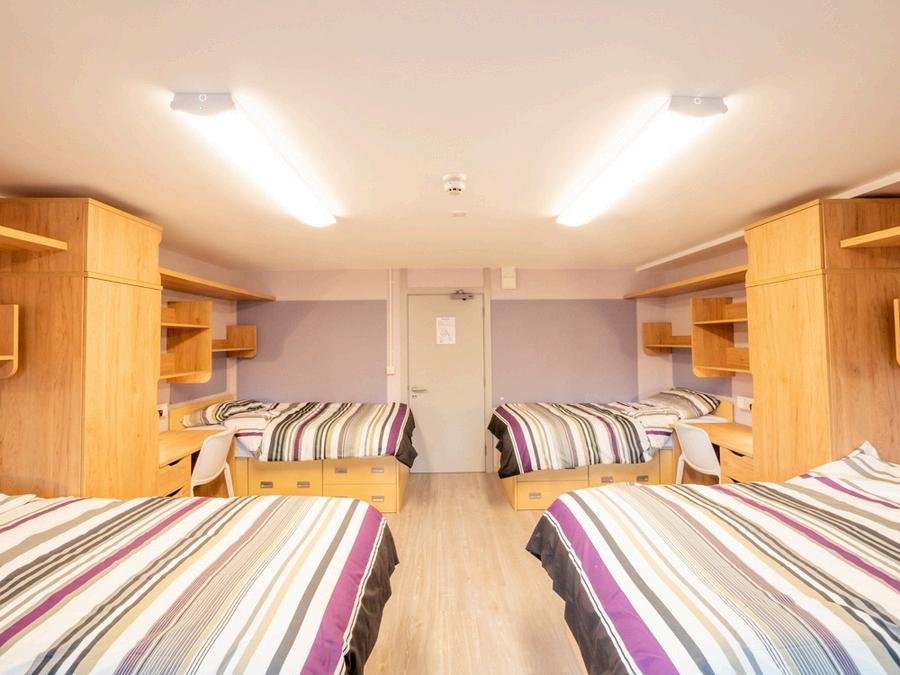
WithinthehousewealsohavetrainedPeerListeners whohavecommittedthemselvesthroughserviceto providepeersupporttohelpwithsomechallengesyou mayface,suchashomesickness
Outsideofschoolhoursthereareanumberof activitiesonandoffcampusTherearemanyclubsto joinandsportstodoThereisalsoastudentshop whereyoucanbuysecondhandclothes.Welivenear asmalltownwhichhasasmallsupermarket,cafes andsomeindependentshops.FurtherafieldisCardiff, amuchlargercitythatyoucanvisitonaSaturdayby train
Duringtheweekendstheactivityprogramme continues,examplesareoutdooractivitiesorganised byourAXdepartmentthroughto‘HottoGo’which isastudent-runrestaurantWealsohavemovie nights,Fridaynightlecturesandothereventsplanned bySLAAC,whichisourStudentLifeatAtlanticCollege council
Allmailshouldbeclearlyaddressedwithyourname andhouse,followedbythecollegeaddress: StDonat'sCastle, StDonat’s, LlantwitMajor, Wales, UnitedKingdom CF611WF
Everyweekdaymailisdeliveredtostudenthouses andkeptinasecureareauntiltheHousementor distributesitatcheckintime.Weencouragestudents toallliveonthesamemodestamountofpocket moneyduringtheyearandthespiritoflivingequally alsoextendstoourparcelexpectations.Wearea globally,sociallyandeconomicallydiverse communitywhohavecometogetherforapeaceable, sustainableandequitableeducation,wetherefore askthatyouconsideryourpurchasescarefully
Studentsareaskedtoconsideravailablespacebefore orderingitemstobedeliveredtocampusaftertheir arrival.Inappropriateitems,suchasfurnitureorany largeitemswillbeconfiscatedIfyouareunsure pleaseaskyourHouseMentorbeforeordering something.

CurfewandCheckin
Campuscurfewisat8:30pmeachday Youwillbe expectedtohavereturnedtocampusandtohave signedinwiththeWelcomeTeamatreception.
Thefinalpartofthedayis‘checkin’whichisthetime thatallstudentsneedtoreturntotheirboarding houses.Thistakesplaceat9:30-10:00pmMondayto Thursdayand10:30-11:00pmFridayandSaturdays.
TheexceptiontothisisonSundaywheneveryone gathersforaHouseMeetingat9:00pm.Thisisan opportunitytocatchupwithyourHouseMentoratthe endofthedayandisatimefordiscussinganyissuesas ahouse HouseMentorsareavailabletoofferpastoral supportandguidance.Studentsdonotleavehouses onceSundaynighthousemeetinghasbegun.

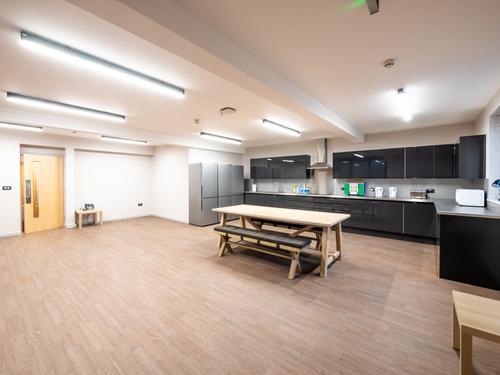


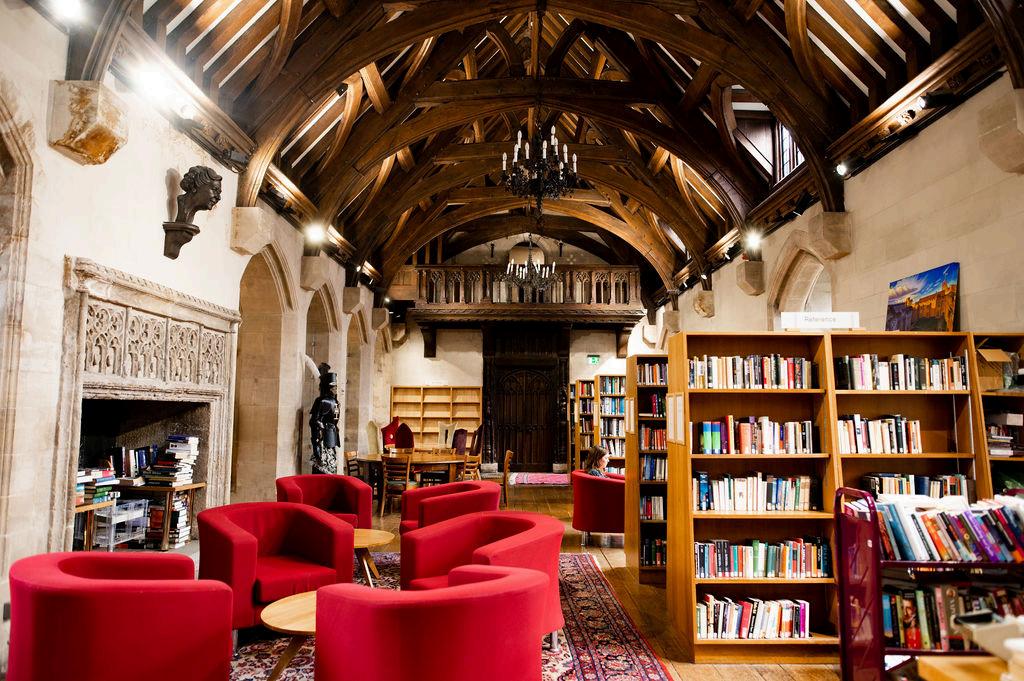
Allvisitorstoindividualstudentshavetoberegisteredforapprovaland mustbeover18yearsofage,unlessaccompaniedbyaparent/guardian. PhotographicIDinlinewithourvisitorspolicyandsafeguardingpolicy mustbeprovidedbyalladultvisitorsonarrival.Visitor’sareonlyableto visitoutsideofschoolhoursandmustbehostedbyyouatalltimes. Visitorsareonlyabletogointheboardinghousesonarrivaland departuredays.
UWCAtlanticisinawonderfulandremotepartoftheValeofGlamorgan DuringthedaytimefromMondaytoSaturday,thereisanhourlybus servicetoLlantwitMajor.However,therearelimitedtravelserviceslate atnight,onSundaysandbankholidays,andthereforestudentsare advisedtoavoidtravelatthesetimes.Allstudentsshouldbebackon campusby8.30pm.
Studentshaveafundamentalrighttobeprotectedfromharmand UWCAtlanticCollegeiscommittedtosafeguardingandpromotingthe welfareofchildrenandyoungpeople.Thesafeguardingteamismade upoftheVicePrincipalforStudentLife,Safeguarding,WellBeingand Belonging,LucretiaFieldswhoistheDesignatedSafeguardingPerson (DSP).Sheissupportedbyateamoffourdeputysafeguardingleads.
Safeguardingcoversmanydifferentissuesandduringyourtimeat UWCAtlantic,youwillreceiveguidanceonhowtokeepyourselfsafe andyouwillbeexpectedtoconductyourselfinawaywhichdoesnot makeothersunsafe.Ourresponsibilitieswithinsafeguardingalso extendtosupportingstudentwellbeing Duringtutorials,orientation, assembliesandotherorganisedactivities,youwillbesupportedto adoptahealthyapproachtolifewhichpromotesyourwellbeing.
Thereisacloselinkbetweensafeguardingandstudentconduct You areencouragedtoreadtheSafeguardingandRespectfulCommunity PolicyandtheBehaviourpolicypriortoyourarrivalatthecollege.Itis expectedthatallstudentsadheretotherequirementssetoutinthese policies Itisbyworkingtogetherthatwecanstrengthen ourcommunity,enablingallofourstudentstothrive
Wherestudentshaveexperiencedpersonaltraumaorloss,weaskthat yousharethisinformationwithustoensurethatwecanprovidethe bestsupportpossible Informationcanbesharedconfidentiallywith theSafeguardingTeam.Wherenecessary,asafeguardingmeetingcan bearrangedwiththeDSPatthestartoftheacademicyear.
OurComplaintsPolicyisavailableontheUWCAtlanticwebsitefor thosewishingtoraiseaquestionorconcern.Residentialliferelated concernsunresolved bythePrincipalor/andtheBoardofGovernors canbedirectedtotheCareInspectorateWales
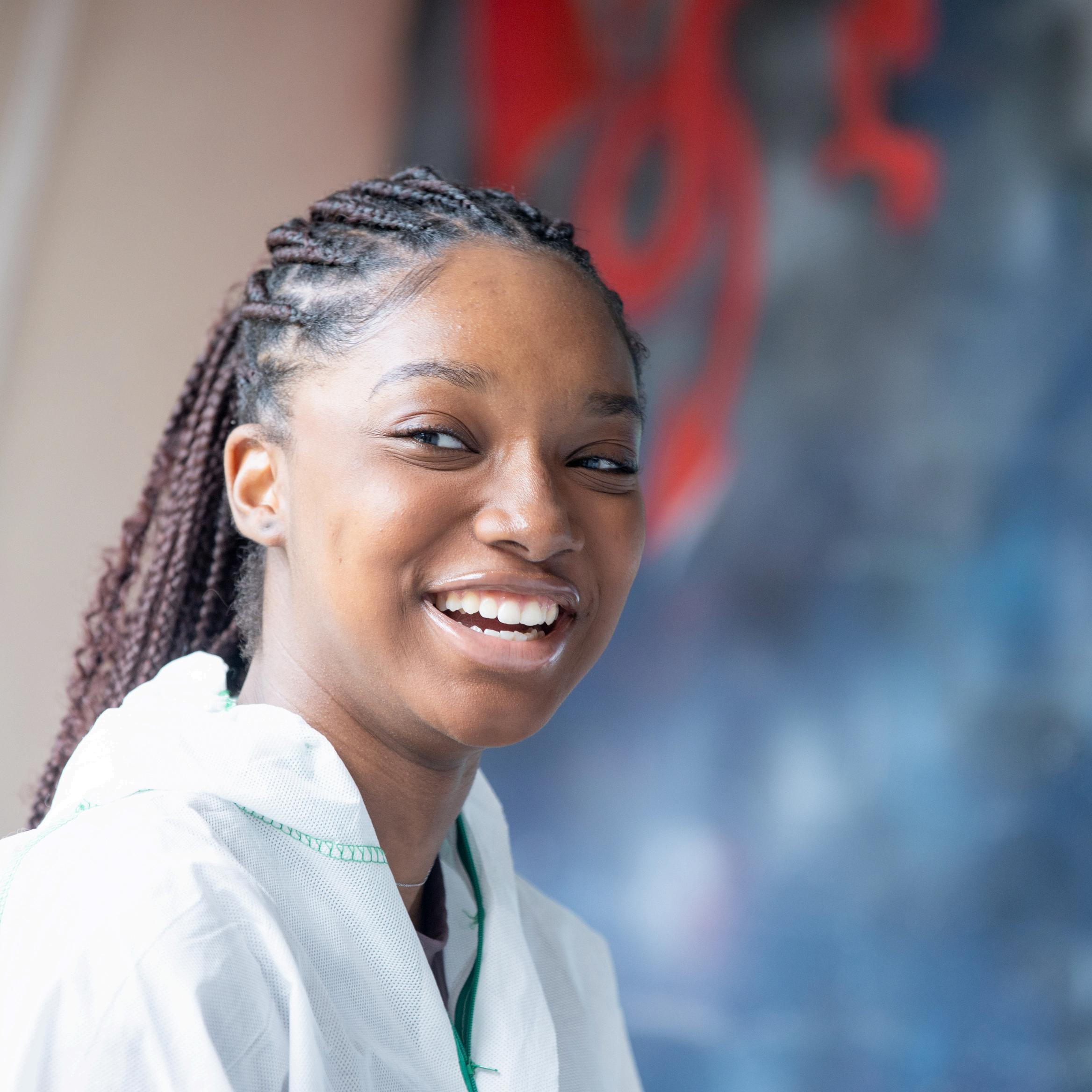
WeencourageallourUWCstudentstobuildandgrow inresilienceandindependenceduringtheirtimehere, butthisdoesnotmeanyouneedtodoeverything yourself.Itisimportantyouknowhow,whenand wheretogoforsupportorsolutionstobetterequip youwiththeknowledge,experienceanddeveloping skillstohelpyouovercometheinevitablepersonal challengesthroughoutyourjourneyatUWCAtlantic andtowardsgreaterpersonalresponsibilityand accountability
Allstaffarecommittedtosupportingthehealthand wellbeingofeachstudent.InadditiontoyourHouse Mentorandtutorthereareotherstaffandservices availabletohelpyouindifferentways
Specificstaffthatareinvolvedwithyourphysicaland mentalhealthwillbeourClinicalPsychologistwho runsourhealthandwellbeingteam.Heissupported byacounsellorandthewiderpastoralteamwhooffer social-emotionalsupportthroughbothindividual appointmentsordrop-insessions
AdditionallywehaveaHealthCentreoncampus whichisstaffedbytwofull-timenursesanda wellbeingassistantandisopen7daysaweektohelp withanymedicalrequirements.Wehavedoctorson campustwiceaweektorunclinics.Thenursesalso haveaccesstoafullrangeofhealthcareprofessionals andcommunitysupportnetworksthroughthe NationalHealthService.
Duringinductionyouwillberegisteredwiththelocal Doctor’sSurgeryandwillbeissuedwithaNational HealthServicenumber Thiswillentitleyouto routinemedicaltreatment,includingprescriptions formedicationandtreatmentforaccidentsand emergenciesfreeofchargeundertheBritishNational HealthService(NHS) MedicalcareintheUKisfree buttheremaybechargesfordentalandoptical services.Orthodontictreatmentisnotavailableon theNHS,butcanbeprivatelyarrangedinCardiff
YouwillneedtocompleteaSelfAdministrationof MedicationAssessmentformwithamemberofthe HealthCentrestafftoensureyoursafeuseof medication Anymedicationthatyouwillbeableto keepinyourdormwillhavetobestoredinalocked cupboard.Somemedicationeg:thoseprescribedfor ADHDareacontrolledsubstanceandtheywould havetobekeptinthecontrolleddrugscupboardin theHealthCentreandissuedbytheHealthCentre staff,thefrequencyofwhichwouldbedetermined followingassessment Allmedicationthatisbrought ontocampuswhetherprescribedintheUKor abroad,mustbedeclaredtotheHealthCentrestaff. Studentsarenotpermittedtostorelargequantities ofmedicationwithintheirpersonalbelongings
HealthCentrestaffandHousementorsmustbe informedofallprescriptionandnonprescription medicationthatyoubringwithyou Ifyouareon regularmedication,youarerequiredtobringatleast amonth’ssupplyatthestartoftermandforwardany reportsfromthemedicalprofessionalwho prescribedthemedication,includingwhyitwas prescribedandanyfollowupinformationeg are regularbloodtestsrequired.Thiswillthenbesentto ourdoctor'ssurgerysothatnotesmaybeupdated andtheycantakeoverprescribing
Ifthereareanypre-existinghealthconditionsoryou developahealthconditionduringyourtimeatUWC Atlantic,anIndividualHealthCarePlanwillbe implementedwithyourinputandacopysharedwith yourParents/Guardian,Housementors,Staff WelcomeTeamandanyotherrelevantteammember whomayneedtobeinvolvedinyourcare
ThisHealthCarePlanwillfeedintotheWelfarePlan thateachstudentatthecollegehas.
TheCollegeinsurancepoliciesdonotcoverstudents’ personalpossessionsanditemsofparticularvaluemustbe insuredprivately Wediscouragestudentsfrombringing valuableitemsandanyvaluableitemsofproperty(suchas camerasandcomputers)shouldbekeptsecurewhilstatthe College Eachstudentisgivenalockabledrawerand wardrobe
Studentsmaywishtoobtaintheirowninsuranceagainst accidentsandunforeseenevents TheCollegehasan agreementforStudents’PersonalAccidentInsurance, detailsofwhichwillbeprovidedwiththejoiningpapers andcanbefoundontheiSAMSParentPortal Thisinsurance isacompensatoryschemeforpermanentdisablementof onesortoranotherandisprovidedatnoadditionalcost tothestudent.Thisinsurancedoesnotcoverthecostsof medicaltreatment
AllstudentsarecoveredbytheCollege’scomprehensive travelinsurancepolicywhilsttravellingforCollegepurposes duringtermtime Thisdoesnotcoverstudenttravelatthe beginningandendoftermnorprivatelyarrangedtravel duringtermtime.Itisrecommendedthatstudentshave theirowntravelinsurancetocoverthesejourneys
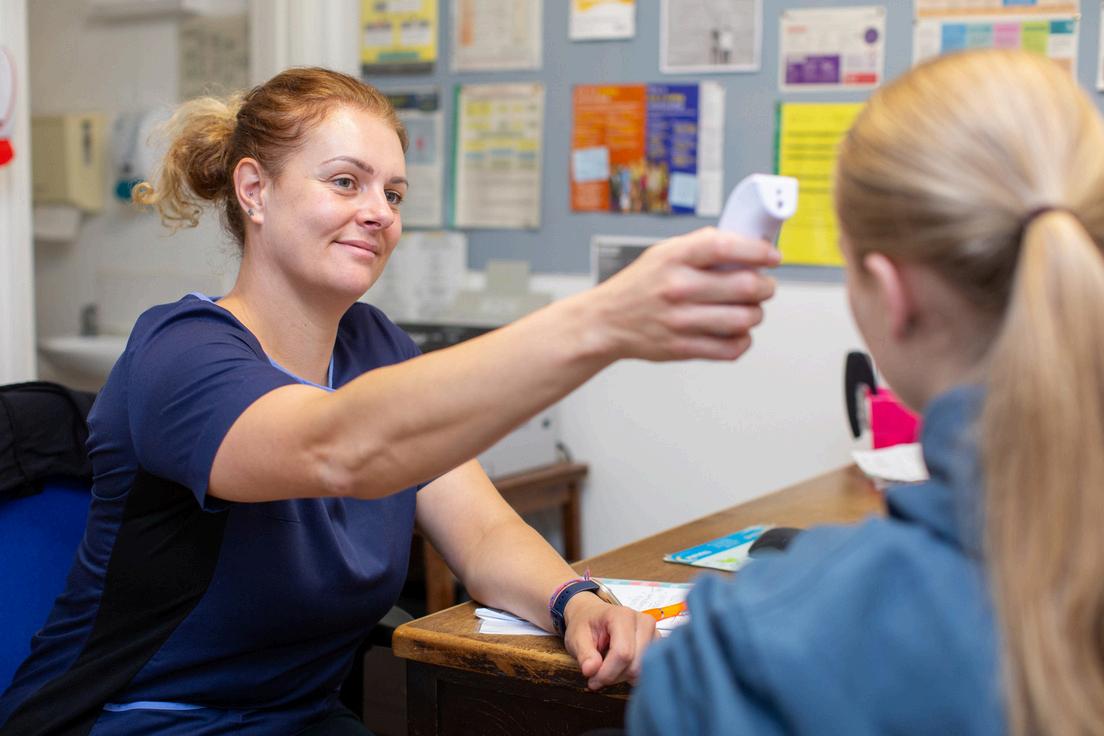
UWCAtlanticunderstandsthateverystudenthas individualneedsthatcanaffectthewaytheylearn We endeavourtomeetsuchneedsasbestwecanthroughour learningsupportnetwork.Ournetworkisdesignedto supportstudentswithlearningdifferencestoreachtheir potentialandaccessthefullUWCexperience
Allstudentsareeligibleforgeneralsupportandspecialist guidanceisavailabletothosewithmorespecificneeds Weprovidearangeofspecialistsupport,including: EnglishasanAdditionalLanguage(EAL)supportfrom theEALCoordinatorandEALteacher
AdditionalLearningNeeds(ALN)supportfromtheALN Coordinator
SocialandEmotionalsupportfromtheStudent Counsellors
MedicaladviceandsupportfromourWellbeing (Health)CentreStaff
Wealsohaveadedicatedbasewhichissituatedinthe Castle,knownastheTheLearningCentre(TLC) Thisis wherestudentscanfindaquietworkspace,computers withassistivetechnology,meetwiththeALNCo,EAL Coordinator,EALteacherorcounsellorsandattend workshopsand1:1supportsessions TheTLCiswhereyou willfindTLCSupportNetwork
TheLearningCentreSupportNetworkcommunicateswith teachers,collegestaffandasateamtoensurestudents aresupportedholisticallyandreceivethemosteffective helpavailable.Studentswithadiagnosedadditional learningneedwillbeplacedonanIndividualDevelopment Plan(IDP) TheIDPisamaintaineddocumentthat describesthelearningdifferenceandrecommends specificstrategiestosupporteachstudentinfully accessingtheirUWCexperience TheIDPfeedsintothe WelfarePlanthateachstudenthasatthecollege Some studentsalsohaveanAcademicSupportPlantohelp themwithanyspecificchallengestheyarefacingthatmay affecttheiracademicprogressandperformance
TheStudentSupportTeamplaysanimportantrolein meetingindividualneedsofstudentsandsupporting allstudents.
TheTeamincludesanEAL(EnglishasanAdditional Language)teacher,anALN(AdditionalLearning Needs)CoordinatorandHeadsofYearstogetherwith theUniversityGuidanceCounsellors,theHeadof Wellbeing,counsellors,thenurse,theHeadof AcademicProgress,theVicePrincipalAcademicsand theVicePrincipalStudentLife,Safeguarding, WellbeingandBelonging.
TheALNCoordinator,theEALCoordinatorandthe EALteacherworkdirectlywithstudents,provide adviceandguidancetostaffandworkcollaboratively withparentsandexternalsupportagenciestoensure thatallstudents’achievementsareatleast commensuratewiththeirability.Studentswith additionallearningneedssuchasdyslexia,ADD, ADHDetc,andlowerEnglishproficiency,willbe accommodatedfromtheverybeginningoftheir educationatUWCAtlantic.Anypreviousassessment ofastudent'slearningneedsshouldbe communicatedandevidenceprovided,toensure immediateaccommodationandsupport Italso helpsustoensurespecialexamarrangementsfor studentswiththeIB.

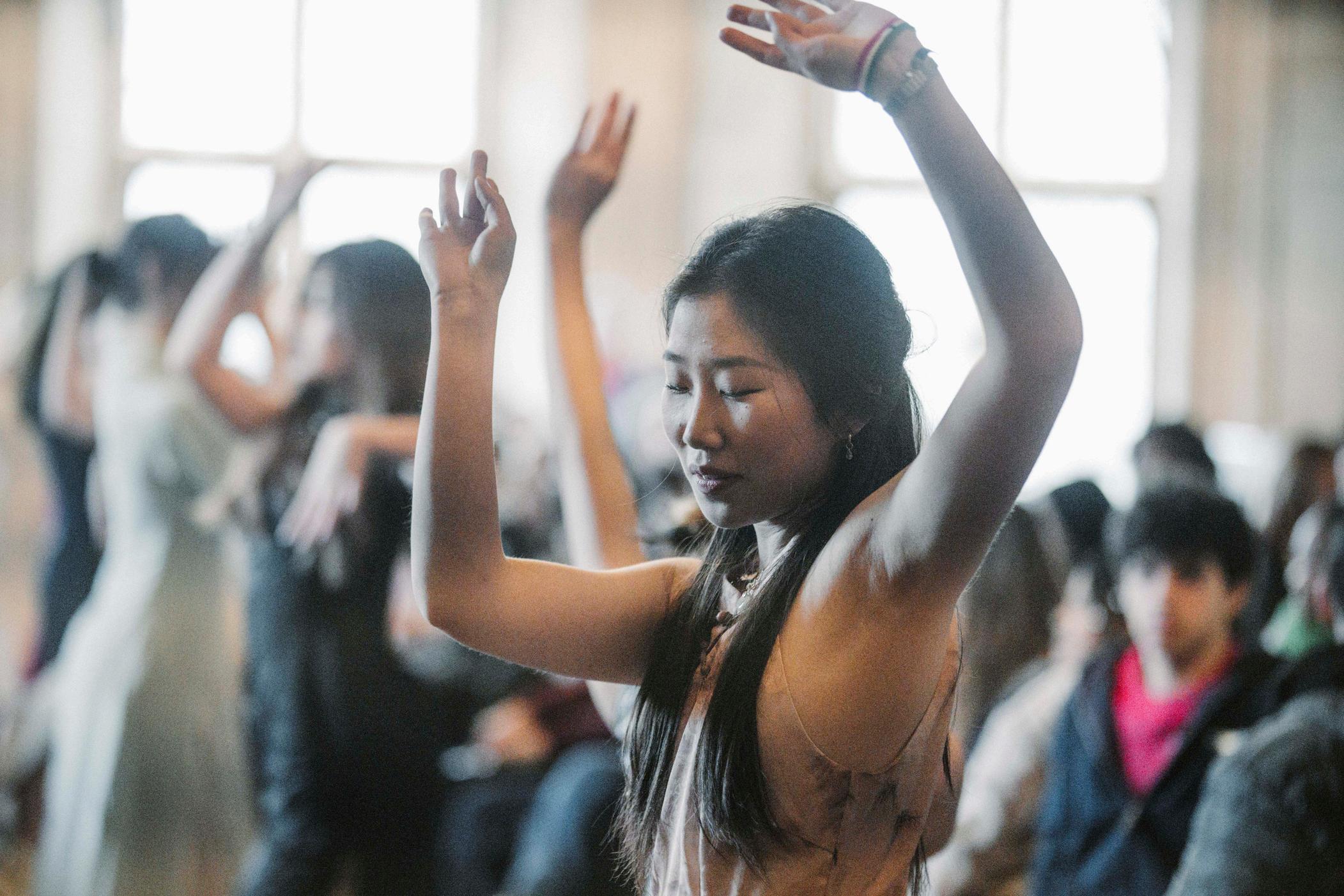
Tominimisedisparitybetweenstudents,werecommend spendingmoneybelimitedtonomorethan£600peryear Thislimitismorethanadequateforthestudent’sneeds andweaskthatparentsadheretothisamount.Please notethisrecommendedamountdoesnotincludethecost ofcalculators,househoodies,yearbooks,personaltrips away,non-curriculartripsrunbystaffortransporttoand fromtheCollege.
AUKsterlingcurrentbankaccount(withdebitcard) shouldbeopenedinthestudent’snamebeforethestartof term.TherearemanymajorUKbankstochoosefromand mostwillofferanonlineapplicationtoopenacurrent account
Thespendingmoneyshouldbedepositeddirectlytothis accountonceopenedIfthereisanyreasonwhyaUKbank accountcannotbeopenedthecollegewillrunareduced ‘CollegeBank’,wherebystudentswithoutaUKbank accountcanwithdrawspendingmoneyonedayaweek. Pleasenotewecannotacceptcashdirectlyfromyouora student,soalldepositsfortheCollegeBankshouldbe madebybanktransfer.TheCollege’sbankaccountdetails areingreenonthispage.
Insomeinstances,spendingmoneyallowancesare providedbythestudent’sscholarship,Inthis caseaUKbankaccountwillstillneedtobeopenedand thespendingmoneywillbetransferred overtothisbankaccountPleaseprovidethefollowing bankdetailstothecollegefinance department–Name(asusedtoopentheUKbank account),bankaccountnumberandbanksort code
Pleasenote:Whentransferringacombinationofdifferentpaymentsinone amount,itisvitalthattheemailcontainsabreakdownofwhatisbeingpaid sothatitcanbecorrectlyrecorded(eg cautionfee£xandpocketmoney£x)
TheAccountsdepartmentwillinvoicetermlyandtheCollege hastwotermsperyear.InJuly,theaccountsdepartmentwill issuethefirstinvoiceaccordingtothesignedfinancial declarationissuedatacceptanceThesecondinvoicewillbe issuedby1stDecemberwithpaymentduebeforeJanuary Studentsmayrequireadditionalfundstofinancetheir projectsinthemiddleofeachterm,butparentsandsponsors shouldknowthattheCollegeiscommittedtolimitthese additionalexpenses,anditispossibleforstudentsto undertakeprojectswithintheCollegeatnoextracostatall.
Youarerequiredtopayacautionfeeof£275paidviabank transfer.Thecautionfeewillcoverlost/unreturnedbooks, unpaidmedicalfeesandtravelfornon-emergencymedical appointmentsMoneywillbedeductedfromthecautionfee foranydamagecausedtoschoolproperty,itemsthatareleft behindthathavetoberemoved,cleaningcharges,nonreturn ofkey/padlocktolockablespaceetcIfnecessary,thecaution moneybalanceshouldbetoppedupto£250atthebeginning ofthesecondyear.Thebalancewillberefundedattheendof yourtwoyearsafteranydeductionsaremade.
TheCollege’sbankaccount:UWCAtlanticCollege Bank:RoyalBankofScotlandplc
Pleasestateclearlyyourname,dateofbirthandthepurpose ofthetransactionandsendanemailto accounts@uwcatlanticorgtoconfirmthetransfer
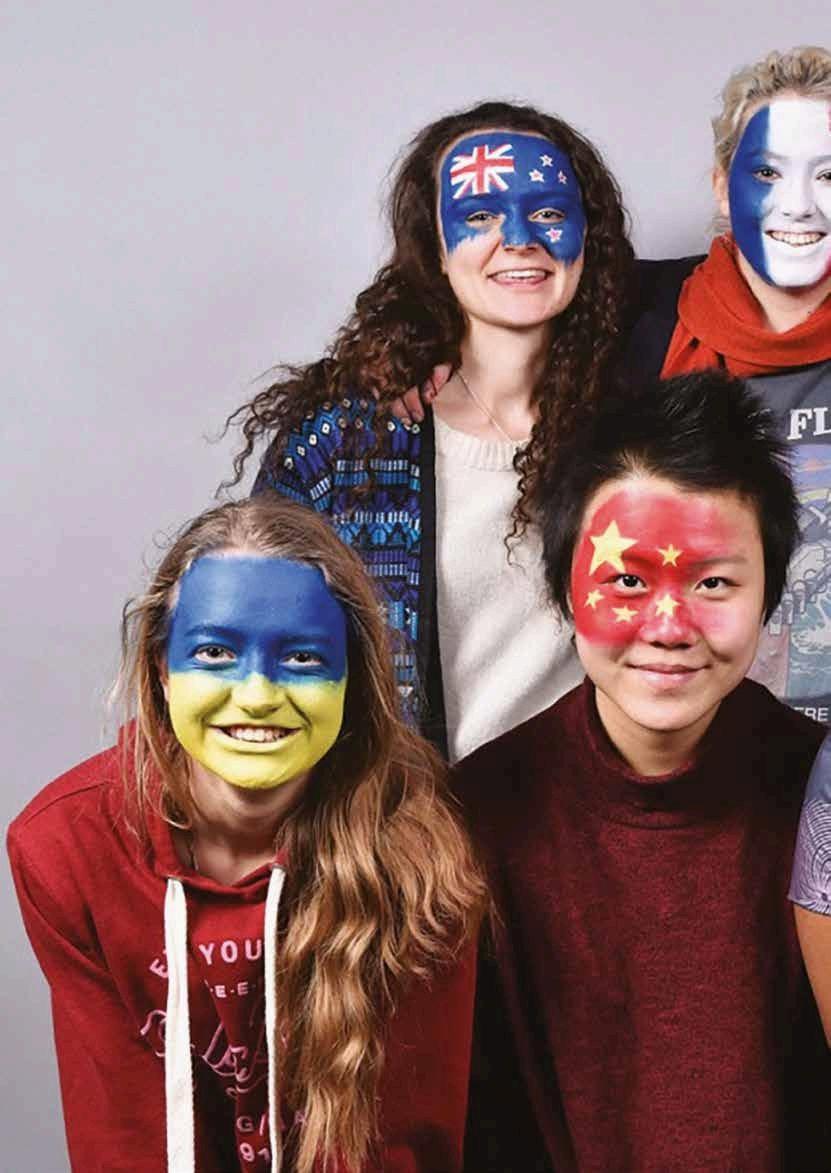
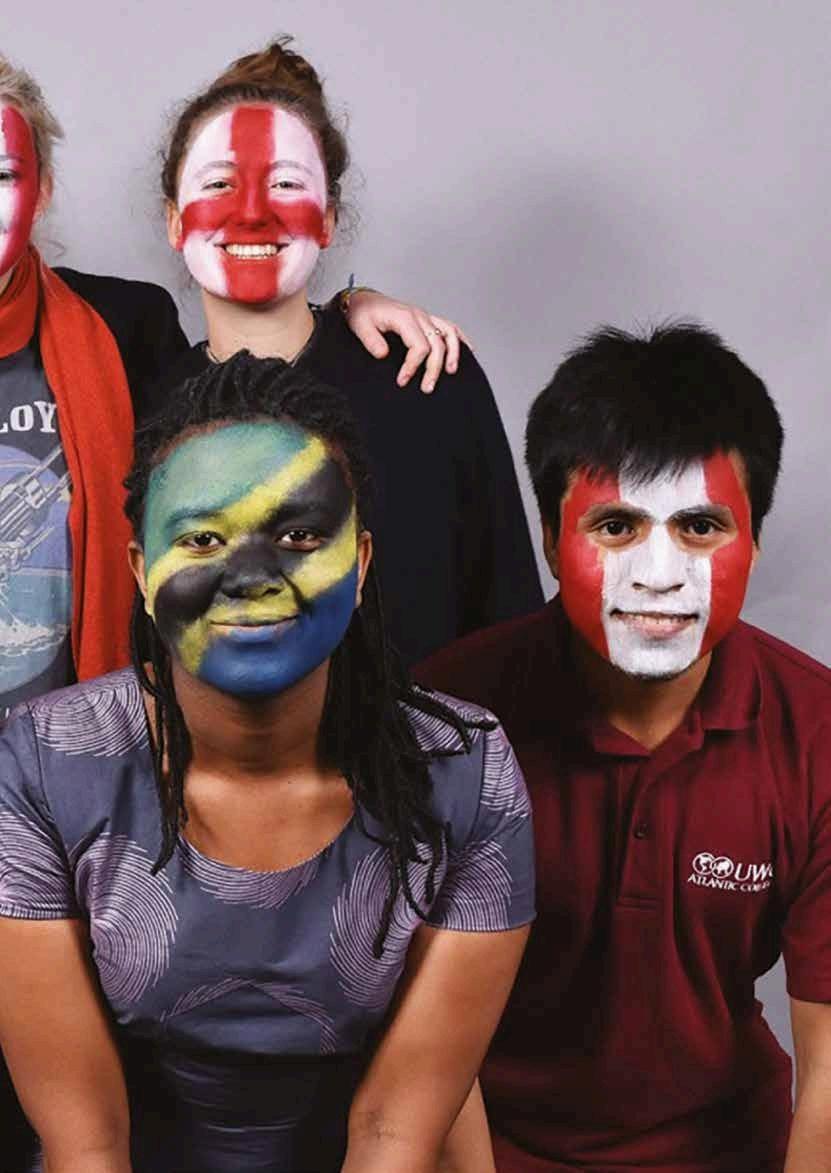
TheAdmissionsteamwillhaveconfirmedyourarrivaldate Onceyourtravelplansareconfirmed,pleasecompletetheTravel FormonOpenApplywhenitismadeavailableviaanemailinJune Pleasenote:Forstudentswhorequireavisatostudyinthe UK,pleasedonotmakeanytravelarrangementsuntilyourvisahasbeengranted.
TheCollegewillarrangeforbusestotransportstudentsfromHeathrowAirporttotheCollegecampusonthearrivaldayonly ThecostofthisbusfromLondonHeathrowAirportis£35,thiswillbedeductedfromthestudent’scollegebankaccountonce theyarriveatthecollege.Therewillbebusesthroughoutthedaywiththelatestbeingat20:00,werecommendbookingflights thatarriveatHeathrowAirportnolaterthan18:00.Thisserviceisforstudentsonly(parentswillnotbeabletotravelonthese buses)
ThemeetingpointtotakethesebusesisTerminal5Arrivals,NorthMeetingPoint,staffmemberswillbetheretoguidestudents ThereisafreeshuttletrainbetweentheotherterminalsandTerminal5.
TheclosestairporttothecollegeisCardiffAirport,itis20minutesawayfromcampus,althoughthereisnotransportprovided bythecollege,theairporttaxicompanyisalwaysavailableintheterminalandthecostofoneridetothecollegeisaround£30
Ifyouaremakingyourownwaytothecollege,studentsarewelcomeonsitefrom13:00.Parentscandropstudentsintheir allocatedboardinghouses Parentsareallowedintoboardinghousesonthefirstandlastdayoftheschoolyearonly Thisis importanttosafeguardourstudents ThecampusaddressisUWCAtlantic,StDonat’sCastle,StDonats,LlantwitMajor,Wales CF611WF.
PleasefindourFAQsectiononourwebsite
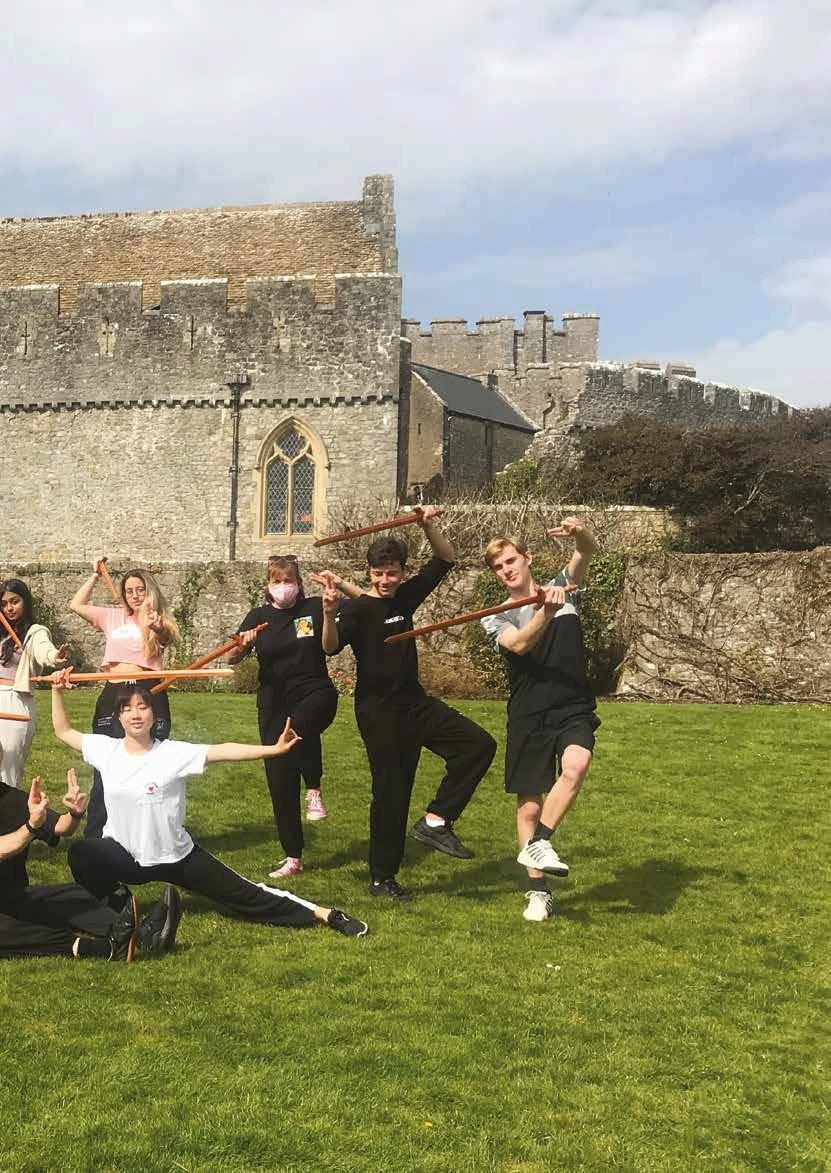
ContactInformation
WithintheUKthefollowingphonenumbersneedtobeprefixedwith01446 OutsideoftheUK,theprefixis00441446
Jill Longson
Naheed Bardai
Lucretia Fields
Chair of Governors
Principal
Vice Principal: Student Life, Safeguarding, Wellbeing & Belonging
Siân Morgan Vice Principal Academics & IB Diploma Programme Coordinator
Marija Uzunova Dang Vice Principal, Learning Innovation
Jeanne Galloway
Nicola Warrick
Debbie Lloyd-Emery
Jennifer Letson
Claudia Valarino
Health Centre
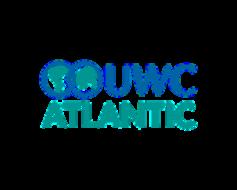
Executive Assistant to the Principal Clerk to the Governors Director of Philanthropy
Admissions
Student Life Coordinator & Education Administrative Assistant
Health Centre Manager
799080
Jill longson@uwcatlantic org
Principal@uwcatlantic org
799301 lucretia fields@uwcatlantic org
799048 sian morgan@uwcatlantic org
799204 marija dang@uwcatlantic org
799000
799000
799308 799002
799077
799023
799022
nicola.warrick@uwcatlantic.org
debbie lloyd-emery@uwcatlantic org Jeanne galloway@uwcatlantic org
admissions@uwcatlantic org claudia valarino@uwcatlantic org
eileen clews@uwcatlantic org
UWC Atlantic is a student sponsor and can sponsor students under both the UK Child Student and Student visa routes
